9/11(Wed.) am9:00~12:00
Moderator
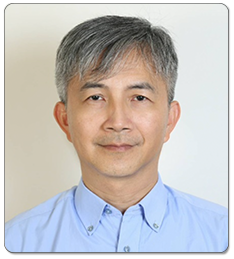
Chief Engineer, Water Resources Agency, Ministry of Economic Affairs
Jian-Cheng Chen
Mr. Chen, Chief Engineer of the Water Resources Department, has over 25 years of experience in hydraulic engineering. He has held various key positions in the Water Resources Bureau, including Director of Sixth River Management Branch, Deputy Chief Engineer, and Chief Secretary.
In 2024, he assumed the position of Chief Engineer, where he is responsible for advancing water resource and flood control projects, operational management of water facilities, reservoir modernization and safety assessments, as well as water source scheduling and domestic water supply. He has been involved in projects such as the construction of the Niaozueitan Artificial Lake , river management and disaster preparedness and response.
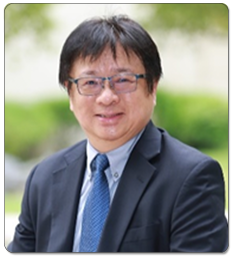
Chair Professor, National Yang-Ming Chiao Tung University
Chih-Pin Huang
Dr. Huang received the B.Sc. and M.S. degrees from National Chang Kung University in 1981 and 1983. He received his Ph.D. from the University of Delaware, and then joined the faculty at NYCU in 1990. From 2019, He became the President of Water Affairs Organization, Taiwan (WAOT). Dr. Huang's outstanding academic research and service achievements have been recognized through many awards and honors, eg, International Honorary Member of AAEES (2019) for his sustained leadership advancing the professional practice of water engineering and science in Taiwan
Keynote Speech
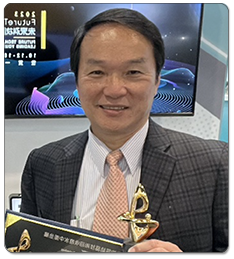
Distinguished Professor, Department of Environmental Engineering, National Chung Hsing University
Ming-Chun Lu
Prof. Ming-Chun Lu received his PhD from National Chiao Tung University, Taiwan, in 1993. He subsequently worked at the Industrial Technology Research Institute, Taiwan, for two years before joining Chia Nan University of Pharmacy and Science, where he dedicated 25 years to teaching and research. Currently, he serves as a Distinguished Professor in the Department of Environmental Engineering at National Chung Hsing University, Taiwan. Prof. Lu's research focuses on advanced oxidation processes for wastewater treatment, fluidized-bed homogeneous crystallization process for metal and non-metal recovery, fuel desulfurization processes, and disinfection technology.
The title of speech
Application of Fluidized-Bed Homogeneous Crystallization Technology for Recovering Metal and Non-metal Resources from Wastewater
Short abstract of speech
The presentation will introduce the application of fluidized-bed homogeneous crystallization technology in wastewater treatment and carbon dioxide capture. This technology utilizes a fluidized-bed reactor to convert wastewater containing metal and non-metal ions into recoverable resources. Its advantages include simple operation, high processing efficiency, and low cost. It can not only treat wastewater containing metal ions but also be applied to non-metal ions. Moreover, there is potential for recovering brine for carbon dioxide capture. However, the technology may face challenges such as operational difficulty and recovery efficiency. Nevertheless, fluidized-bed homogeneous crystallization technology still holds high potential for application in wastewater treatment and carbon dioxide capture.
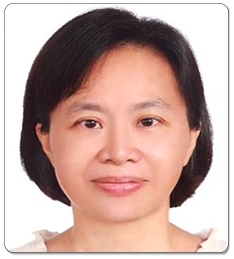
Professor, Department of Life Sciences, National Yang Ming Chiao Tung University
Sheh-Yi Sheu
Prof. Sheh-Yi Sheu obtained her PhD in the Department of Chemistry from Michigan State University, USA, in 1990. Her research interests are the development of nano-biomimetic materials, desalination and biomolecular transistors, molecular quantum computers, nano-battery, biophysics/structural biology, and computer-aided drug design.
The title of speech
Sustainable, high-efficiency, energy-free desalination — biomimetic nanotubes
Short abstract of speech
Climate change causes droughts and water shortages. Membrane desalination is one of the most widely employed conventional methods of creating a source of clean water, but it is also an energy- intensive process. Membrane separation requires high salt selectivity across nano-channels, yet traditional techniques remain inefficient. Herein, a bioinspired, chemically robust, amyloid–fibril-based nanotube is designed, exhibiting water permeability and salt rejection properties capable of providing highly efficient desalination. Molecular dynamics simulations show that nano-dewetting facilitates the unidirectional motion of water molecules on the surface of amyloid beta (Aβ) sheets owing to the ratchet structure of the underlying potential surface and the broken detailed balance. The water inside the self-assembled Aβ nanotube (ABNT) overflows, while the passage of salts can be blocked using amphiphilic peptides. The designed nano-filter ABNT shows 100% desalination efficiency with perfect NaCl rejection. The production of ≈2.5 tons of pure water per day without any energy input, which corresponds to a water flux up to 200 times higher than those of existing commercial methods, is assessed by this simulation method.
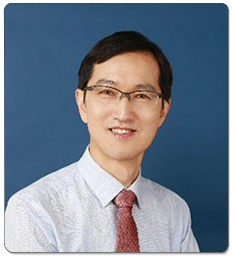
Professor, Kyungpook National University
Kwang-Ho Choo
The title of speech
Membrane Technology: Future Solutions for Nutrient, Energy, and Water Recovery
Short abstract of speech
The global focus has shifted towards a carbon-neutral circular economy model, emphasizing the recovery and reuse of valuable resources such as nutrients, energy, and water from waste streams. This shift recognizes the finite nature of these resources, often overlooked in past consumption patterns. Membrane technology plays a vital role in this new approach to water and wastewater management despite challenges such as membrane fouling. This lecture will introduce the potential transition from aerobic to anaerobic membrane bioreactors to reduce energy consumption in wastewater treatment while simultaneously recovering nutrients. Membrane distillation offers a promising option to minimize wastage and maximize resource recovery. Additionally, electrochemical reactions and microbial quorum quenching techniques could help address the longstanding issue of membrane fouling, making membrane technology more popular and effective in the field.
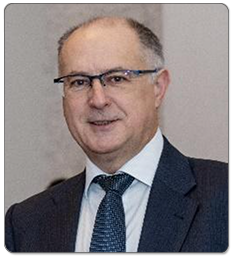
Director of Innovation, Water Business, Acciona
Jorge Malfeito
The title of speech
Reverse osmosis desalination as an alternative water supply: cutting-edge technological innovations
Short abstract of speech
Reverse osmosis (RO) desalination has become a leading method for providing fresh water from saline sources, particularly in areas where freshwater resources are scarce. Recent technological innovations are enhancing the efficiency, sustainability, and cost-effectiveness of this process. This work explores the state of the art of the technology and the cutting-edge developments and recent breakthroughs in innovation pertaining to RO seawater desalination, with a specific focus on process optimization and the minimization of energy consumption, advance materials, and the integration of artificial intelligence tools.